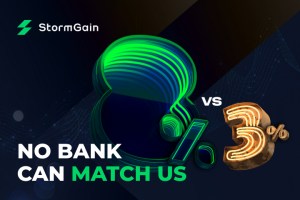The Future of Blockchain?Blockchain technology has taken the world by storm, offering a decentralized and secure method for recording and verifying transactions. Initially developed as the underlying technology for cryptocurrencies like Bitcoin, blockchain is now being explored for its potential to transform industries beyond finance.
In this blog post, we will explore how blockchain technology is being applied in sectors like supply chain management, healthcare, and more. By understanding the potential of blockchain beyond finance, we can gain insights into the future of this transformative technology.
The Future of Blockchain Supply Chain Management

One of the most promising areas for blockchain technology is supply chain management.
By using blockchain, companies can create an immutable and transparent record of every transaction along the supply chain,
from raw materials to finished products.
This can help to eliminate fraud and counterfeiting, reduce waste and inefficiency, and increase transparency and accountability.
For example, Walmart has already implemented a blockchain-based system for tracking food products,
allowing the company to quickly identify the source of any contamination or quality issues.
Healthcare

Another sector where blockchain is showing promise is healthcare. By using blockchain, healthcare providers can create a secure and decentralized system for managing patient data. This can help to ensure that patient data is accurate and up-to-date, while also protecting patient privacy.
In addition, blockchain can help to streamline administrative processes, reduce paperwork, and improve the efficiency of healthcare systems.
For example, the startup MedRec is using blockchain to create a shared database of patient health records that can be accessed by multiple providers.
Digital Identity
Blockchain is also being explored for its potential to transform digital identity management.
By using blockchain, individuals can create a secure and decentralized digital identity that can be used to verify their identity online.
This can help to reduce fraud and identity theft, while also giving individuals more control over their personal data.
For example, the startup Civic is using blockchain to create a secure digital identity platform that can be used for everything from online banking to voting.
Real Estate

Blockchain is also being applied in the real estate sector,
where it can help to streamline property transactions and reduce fraud.
By using blockchain, property transactions can be recorded in a secure and transparent way,
reducing the need for intermediaries and simplifying the process for buyers and sellers.
For example, the startup Propy is using blockchain to create a decentralized platform for buying and selling real estate,
allowing transactions to be completed entirely online.
Conclusion
Blockchain technology is still in its early stages, but its potential for transforming industries beyond finance is becoming increasingly clear.
From supply chain management to healthcare, digital identity,
and real estate, blockchain is being explored for its ability to create more secure, efficient, and transparent systems.
As we look to the future of blockchain, it’s important to continue exploring its potential applications and to address any challenges that may arise.
By doing so, we can unlock the full potential of this transformative technology and create a more secure and efficient world for all.
block-chain crypto financial freedom nft
Last modified: 4 May 2023











Hey there! Came across your post on the WordPress feed and couldn’t resist saying hello. I’m already hooked and eagerly looking forward to more captivating posts. Can’t seem to find the follow button, haha! Guess I’ll have to bookmark your blog instead. But rest assured, I’ll be keeping an eye out for your updates!
Thank you for reaching out and expressing your interest in my posts. If there’s anything specific you’d like to know or talk about, please let me know, and I’ll be more than happy to help!
I learnt about blockchain recently and I just went like, how didn’t I know about this earlier!? Blockchain has literally taken over the world of business and finance and I didn’t even know! This post increased the scope of my research and thanks a lot for that!
That’s great to hear that the post sparked your interest in blockchain technology! It’s true that blockchain has gained significant attention and is being widely adopted in various industries, particularly in business and finance.
Blockchain is a decentralized and transparent digital ledger that securely records transactions across multiple computers. Its key features, such as immutability, transparency, and security, make it attractive for applications beyond cryptocurrencies, including supply chain management, healthcare, real estate, and more.
If you’re interested in diving deeper into blockchain, there’s a wealth of information available for you to explore. You can research the technology’s fundamentals, its potential use cases, and even learn about developing blockchain applications. Additionally, staying up to date with the latest developments in the blockchain space can help you understand its evolving impact on different sectors.
If you have any specific questions about blockchain or need guidance on where to start your research, feel free to ask. I’m here to assist you!
I knew Blockchain had begun playing a huge role in the world of tech and business, but I never thought its use had widespread into so many sectors. This post has it all and I’m really glad I found it.
Hello Eranga! I’m glad you found my post on the future of blockchain and its transformation of industries beyond finance insightful and comprehensive. Indeed, blockchain technology has expanded its influence beyond the realm of finance and has found applications in various sectors.
Blockchain’s inherent characteristics, such as decentralization, transparency, and immutability, make it a valuable technology for industries like supply chain management, healthcare, energy, real estate, and more. It has the potential to enhance security, efficiency, and trust in these sectors, bringing about significant transformations.
I appreciate your enthusiasm and the fact that you found the post valuable. If you have any further questions or if there are specific topics within the realm of blockchain technology that you’d like to explore, feel free to let me know. I’m here to provide information and insights to help you delve deeper into this exciting field.
Thank you for your feedback, and I look forward to sharing more valuable content with you in the future!
Using blockchain for the healthcare sector was not something I thought of before! This is news to me as I did not have a clue about how to integrate healthcare with emerging technologies. This is going to help me with something I’m working on right now too! Thank you so much!
You’re welcome! I’m glad to hear that the idea of using blockchain in the healthcare sector has sparked your interest and could potentially help you with your current project. Blockchain technology indeed has the potential to transform industries beyond finance, and healthcare is one such industry that can greatly benefit from its implementation.
Blockchain offers several advantages in healthcare, including:
1. Data Security and Privacy: Blockchain’s decentralized and immutable nature makes it highly secure for storing sensitive patient data. It can provide enhanced privacy controls, transparency, and secure access to health records, preventing unauthorized tampering or access.
2. Interoperability: Healthcare systems often face challenges in interoperability, where different systems and databases cannot easily communicate with each other. Blockchain can enable seamless data exchange and interoperability between various healthcare providers, improving efficiency and patient care coordination.
3. Medical Records Management: Blockchain can revolutionize medical record-keeping by creating a single, comprehensive, and tamper-proof digital record for each patient. This can reduce medical errors, streamline data sharing between healthcare providers, and empower patients to have more control over their medical information.
4. Clinical Trials and Research: Blockchain can facilitate the transparent and secure management of clinical trial data. It can help maintain the integrity of trial data, ensure proper consent and adherence to protocols, and allow for the traceability of results. This can improve the efficiency and reliability of clinical research.
5. Supply Chain Management: Blockchain’s decentralized ledger can track the entire supply chain of pharmaceuticals and medical devices, ensuring transparency, authenticity, and traceability. This can help combat counterfeit drugs, streamline inventory management, and enhance patient safety.
6. Telemedicine and Remote Monitoring: Blockchain can enable secure and decentralized storage of patient-generated health data collected through remote monitoring devices. This can support telemedicine initiatives, enable real-time monitoring, and facilitate personalized healthcare delivery.
It’s important to note that while the potential benefits of blockchain in healthcare are significant, there are still challenges to overcome, such as regulatory considerations, data standardization, and integration with existing systems. Additionally, ensuring data privacy and security are paramount in healthcare blockchain implementations.
As you explore integrating blockchain with healthcare, I encourage you to further research specific use cases and best practices to ensure you leverage the technology effectively. Consulting with experts in both healthcare and blockchain can also provide valuable insights and guidance.
Best of luck with your project, and I hope you find innovative ways to leverage blockchain in the healthcare sector!